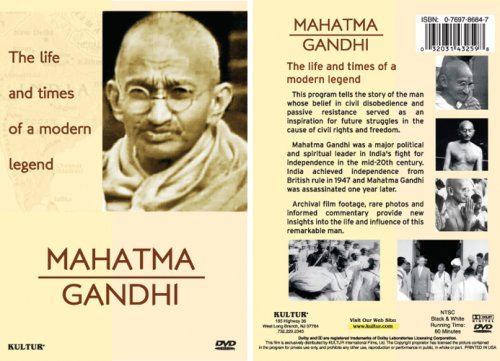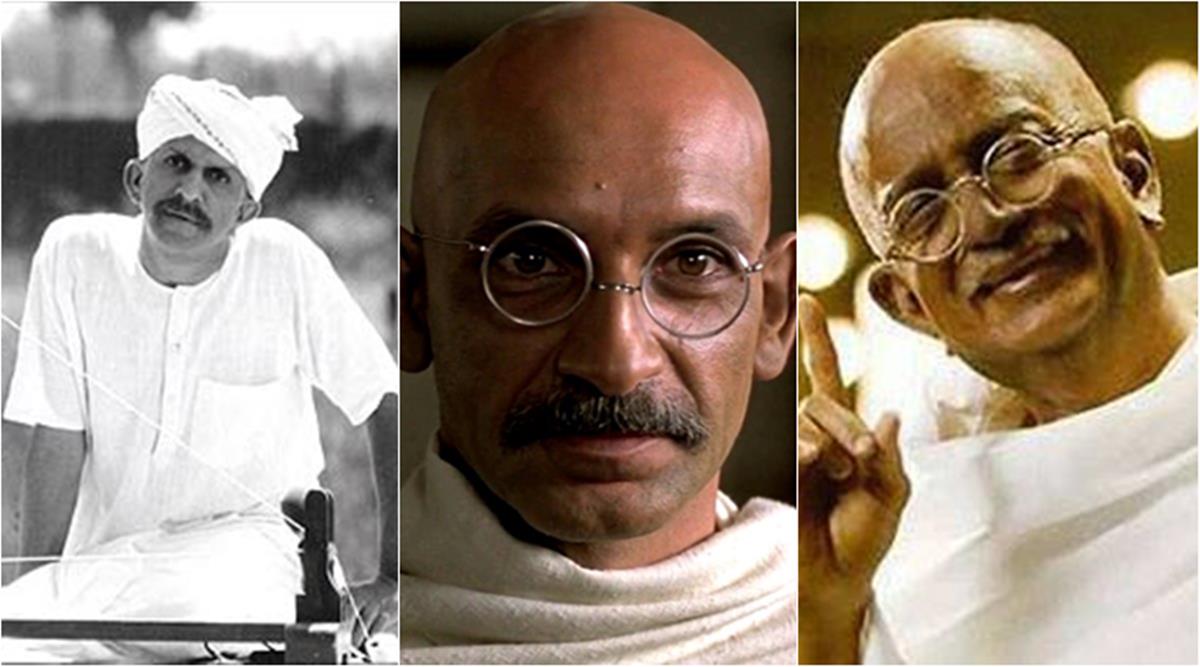

Like the first scene I described and others. A picture is worth a thousand words and a scene without words is worth a million.

Richard Attenborough like all directors worth their salt uses visual aid as a medium to replace conventional dialogue delivery at times.
#Mahatma gandhi full movie movie#
The first few years because I couldn't understand and the next few because I felt that though it's a multiple Oscar winner, how could at the end of the day, a British person understand and do justice to an Indian icon ? After so many years I finally broke the ice and saw the movie in totality right from the first scene of Nathuram Godse, to Hey Ram, and I understood that Gandhi was as British, as much a part of Britain's history as he was of India's, in fact an outsider judged the person better than we ourselves could, hence without doubt this is a masterpiece, because it was always meant to be. I never watched it whenever it was shown since 20 years of 2nd Octobers I had seen. To know why read on ! On day of 2nd October they play this movie every year on DD National, Richard Attenborough's Gandhi. This scene though may seem insignificant on paper is one without which this entire movie would have been incomplete. We walks in alone, unescorted and as soon as he walks in there is an unexplainable silence in the court, and to everyone's surprise the Judge, stands up in respect of the accused ! Seeing him do this the barristers and rest also stand up. Gandhiji walks in a court, accused of influencing the people and starting a movement, the Non Cooperation movement, immediately after Gandhiji broke the fast he started to curb the movement which had assumed violence after Chauri Chora. He thereby angers many dissidents on both sides, one of whom finally gets close enough to assassinate him. Gandhi spends his last days trying to bring about peace between both nations. Gandhi is opposed to the idea, and is even willing to allow Muhammad Ali Jinnah to become the first prime minister of India, but the Partition of India is carried out nevertheless. It is hoped that by encouraging the Muslims to live in a separate country, violence will abate.

It is decided that the northwest area of India, and eastern part of India (current day Bangladesh), both places where Muslims are in the majority, will become a new country called Pakistan (West and East Pakistan respectively). The fighting does stop eventually, but the country is divided. Gandhi declares a hunger strike, saying he will not eat until the fighting stops. Religious tensions between Hindus and Muslims erupt into nation-wide violence. Indians celebrate this victory, but their troubles are far from over.

Too weak from World War II to continue enforcing its will in India, Britain finally grants India's independence. Nevertheless, the campaign generates great attention, and Britain faces intense public pressure. There are some setbacks, such as violence against the protesters and Gandhi's occasional imprisonment. Gandhi agrees, and mounts a non-violent non-cooperation campaign of unprecedented scale, coordinating millions of Indians nationwide. He is urged to take up the fight for India's independence from the British Empire. After this victory, Gandhi is invited back to India, where he is now considered something of a national hero. After numerous arrests and the unwanted attention of the world, the government finally relents by recognizing rights for Indians, though not for the native blacks of South Africa. Gandhi realizes that the laws are biased against Indians and decides to start a non-violent protest campaign for the rights of all Indians in South Africa. Gandhi is thrown off a South African train for being an Indian and traveling in a first class compartment.


 0 kommentar(er)
0 kommentar(er)
